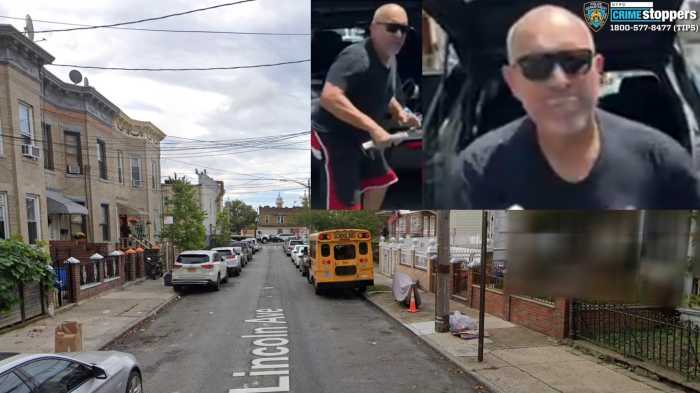
A man freed from prison after serving 30 years for a crime he did not commit is ready to start life anew.
Standing among family and friends, Mark Denny, 46, said he had endured hardships during his time in prison for a wrongful conviction on rape and robbery charges, but he is ready to move forward.
“I’m feeling great. I’m feeling free. I’m feeling enthusiastic and I’m ready to carry on with my life as best as I can,” he told NBC4 and other reporters after his release on Wednesday.
Denny’s conviction was vacated by acting Brooklyn District Attorney Eric Gonzalez on Wednesday after an extensive investigation by his office. An unreliable identification procedure, statements from Denny’s three co-defendants, an analysis of multiple accounts given by the victim and a re-examination of the evidence in the case were all factors that led to Denny’s conviction being vacated, according to Gonzalez’s office.
“After a lengthy and extensive investigation into this horrific case, I have concluded that the cause of justice requires that we vacate the conviction of Mr. Denny,” the district attorney said in an emailed statement Wednesday. “The false identification was not the fault of the courageous victim or law enforcement personnel, but happened because little was known back then about memory retention and retrieval, and their effect on eyewitness identification.”
Denny’s conviction stemmed from an early morning robbery of a Brooklyn Burger King on Dec. 20, 1987, in which a group of young men stole $3,000 from the safe and repeatedly raped and sodomized an 18-year-old worker, according to the district attorney’s office. The victim gave 10 statements between the night of the attack and her trial testimony, some of which detailed three attackers and others four.
After Denny was arrested in January 1988, along with the three co-defendants who were wanted for a Manhattan Burger King robbery, the victim picked him out of a lineup even though she had not identified him in a previous photo array, Gonzalez said. Her trial testimony against Denny was characterized by the district attorney’s office as “vague regarding his description and actions.”
Jennifer Dysart, an associate professor of psychology at John Jay College of Criminal Justice who specializes in studying the reliability of eyewitness identifications, was able to point to a number of factors in Denny’s case “that have been shown to affect witness accuracy,” including the delay between the crime and his arrest.
The investigation also revealed no corroborating evidence exists tying Denny to the crime.
Denny had maintained his innocence throughout his trial and several parole hearings after being sentenced to 19-57 years in prison. He was given parole in October, but a release date had not yet been set when Gonzalez announced his conviction would be vacated.
After his release on Wednesday, Denny said the attitude toward sex offenders inside prison is not much different from outside, and because of that he carried “the stigma of being ostracized, being criticized, condemned…” during his incarceration.
“It was torture to my mind. I even came to the point where I almost committed suicide. But somehow I was able to get over that hurdle,” he added.
The investigation that led to Denny’s freedom was conducted by the district attorney’s Conviction Review Unit. To date, its investigations have led to 24 convictions being vacated, including Denny’s. It has also found 60 convictions it reviewed to be just and did not recommend they be vacated, Gonzalez’s office said.





























